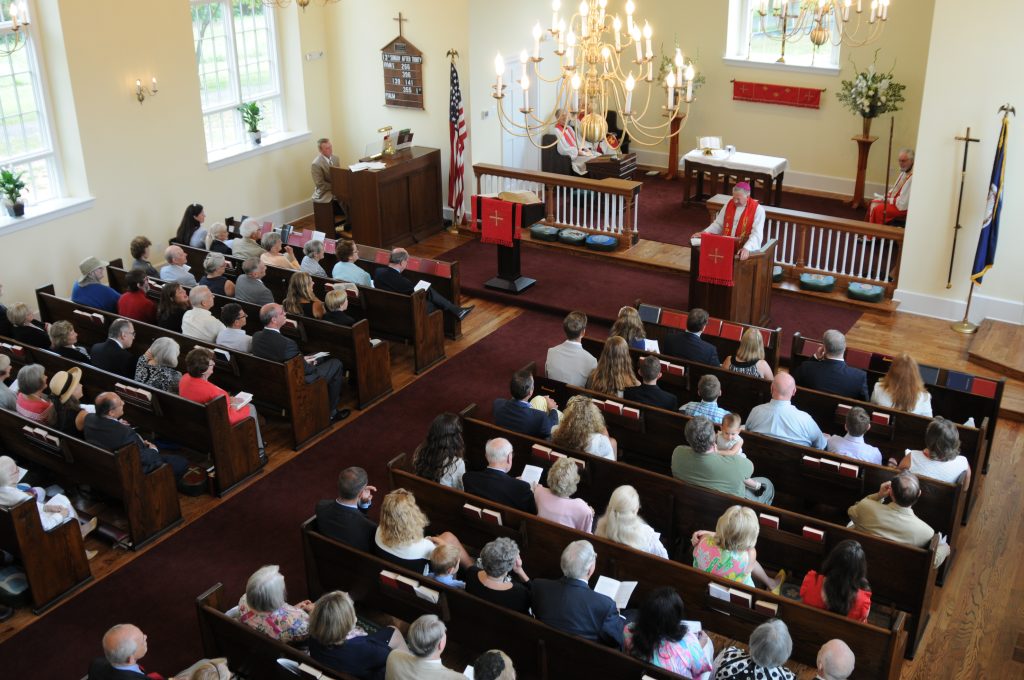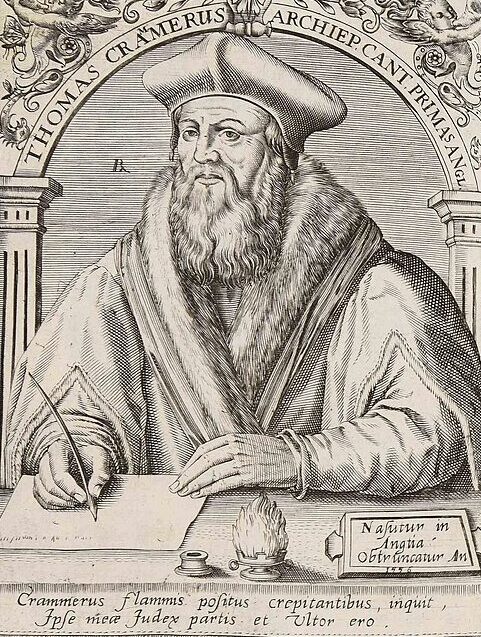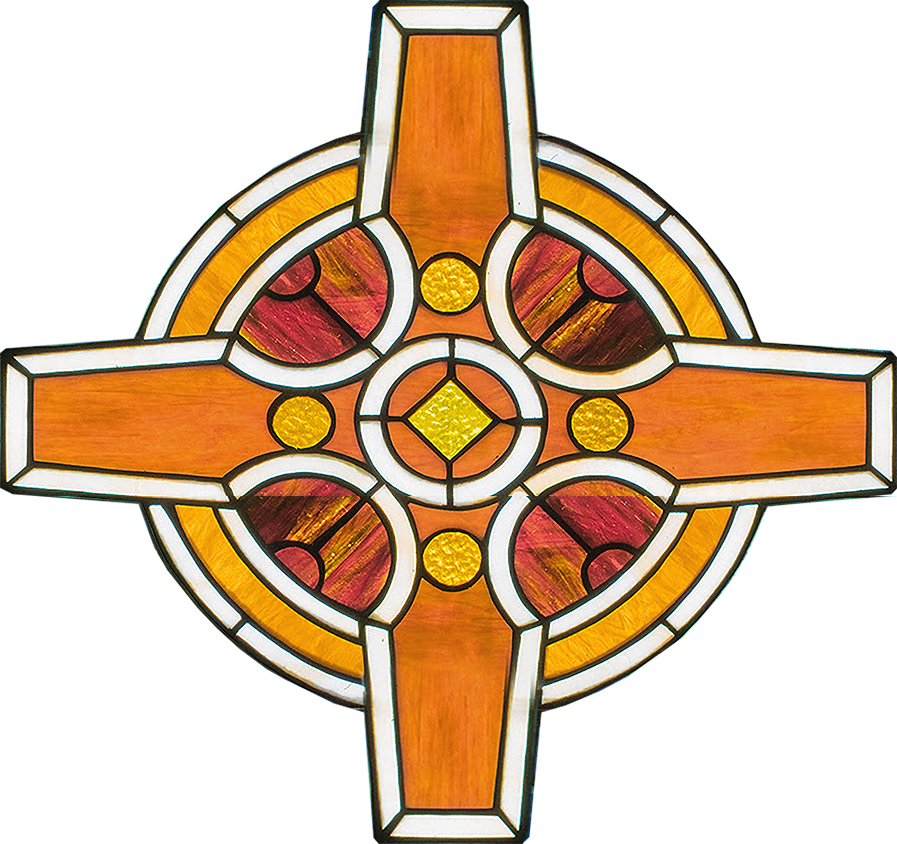The worship of the Church of Our Saviour stands in stark contrast to modern trends.
By the grace of God, we continue to uphold and carry forward authentic Anglican Christianity in the form in which it was delivered to us through the 1928 Book of Common Prayer and the King James Bible.

Their poetic and authentic language has resounded down the generations of Anglican worshippers, connecting us with the past generations who used those very same words to worship God. …

Why we use the King James Bible
The 1928 Book of Common Prayer is directly descended from, and uses the very words of, the 1549 and the 1662 Books of Common Prayer.
The King James Bible is itself more than 400 years old. Why do we continue to use the 1928 Book of Common Prayer and the King James Bible, with their language which falls strangely on modern ears, and which some call “antiquated”?
Our adherence to the jewels of our Anglican heritage is well-grounded on these principles:
More than half of the 1928 Book of Common Prayer is cited Scripture, Psalms, Gospels, and Epistles, as well as prayers that are themselves replete with Scriptural citations. If the only book one owned was the 1928 Book of Common Prayer, one would hold in their hands all that is needed to know for saving faith. The 1928 Book of Common Prayer is aptly called “the Bible in devotional form.”

Where the 1928 Book of Common Prayer is required, the congregation is protected from the vagaries of a local minister who can pick and choose Scripture he likes while ignoring what he doesn’t. That means that a church service is stamped with the authority of Scripture rather than the character or personality of the individual minister.

The 1928 Book of Common Prayer combined with the use of the King James Bible provides a shared worship and vocabulary for all Anglicans – regardless of the local church they attend — rather than a Babel of vocabularies, styles and liturgies through which Scripture runs the danger of losing its meaning. We derive encouragement from our shared worship because we realize we are a part of the greater Anglican whole.

The magnificent language of the King James Bible and the 1928 Book of Common Prayer is vital to the mission of the Church of Our Saviour. Of course, the language is not ordinary or contemporary. It was never so intended, even in the Elizabethan and Jacobean times in which it was employed to translate from the original Hebrew and Greek. Rather, it was intended to be simultaneously poetic, awe-striking and inspiring.
The learned Translators of the King James Bible aimed at a powerful, precise, but elevated language that could, and does, carry the sacred freight it has to carry – the Holy Scriptures, language that lifts us up to the Lord, instead of bringing the Word down to our level.
It is language that demonstrates to us the unutterable majesty and mystery of God and how very far from Him we would be but for Our Lord and Saviour Jesus Christ.

Because the language of these great works was meant to be read aloud to and by the Congregations, it was intended to be as powerful, poetic, and memorable as it could be while still adhering as literally as possible to the original texts.

The King James Bible and the 1928 Book of Common Prayer complement each other perfectly in our authentic liturgy. Liturgy is not merely a “style” of worship disconnected from theology. Liturgy is theology as it is enacted in our public worship. It is as the music of theology.

To this day, the King James Bible and the 1928 Book of Common Prayer continue to awaken in us, and in our children, a sense of awe and reverence for the revealed Word of God. Their poetic and authentic language has resounded down the generations of Anglican worshippers, connecting us with the past generations who used those very same words to worship God. They will connect us with our own children and their children in the future.
The King James Bible has rightly been called the greatest work ever written in English. The same has been said of the 1928 Book of Common Prayer.
The influence of these magnificent works on writers and orators has been incalculable, as witness the writings and oratory of C.S. Lewis, Abraham Lincoln, Winston Churchill, and Martin Luther King, Jr., among many others.

The King James Bible and the 1928 Book of Common Prayer are faithful to the original Bible. Sometimes it is objected that, in spite of the superb scholarship of the King James Translators, their efforts did not take into account certain subsequently re-discovered New Testament writings. In fact:
these re-discovered writings did not reveal any significant flaws in either the King James Bible or the 1928 Book of Common Prayer. Nor do they show that even the slightest change is called for in the original, authentic Christian message given us by the King James Bible or the 1928 Book of Common Prayer.
Supporters of the King James note that its gifted Translators often came closer to the meaning of the original Greek and Hebrew texts than many modern translations.

Modern translations also flatten the language and talk down to the congregations rather than lift them up to the Lord. As one critic (Adam Nicolson in “God’s Secretaries”) put it:
“The flattening of language is a flattening of meaning. Language which is not taut with a sense of its own significance, which is apologetic in its desire to be acceptable to a modern consciousness, language in other words which submits to its audience, rather than instructing, informing, moving, challenging and even entertaining them, is no longer a language which can carry the freight the Bible requires. It has, in short, lost all authority.”
Thus, instead of the sacred, awe-striking, and exalted vocabulary hallowed and authenticated by sharing the original, undiluted Christian Gospel across the generations, the newer translations have given us a Babel of commonplace jargon that will disappear as soon as our current dialect is out of fashion. They have forgotten, as Nicolson says, that ordinariness is not the Bible’s subject.
